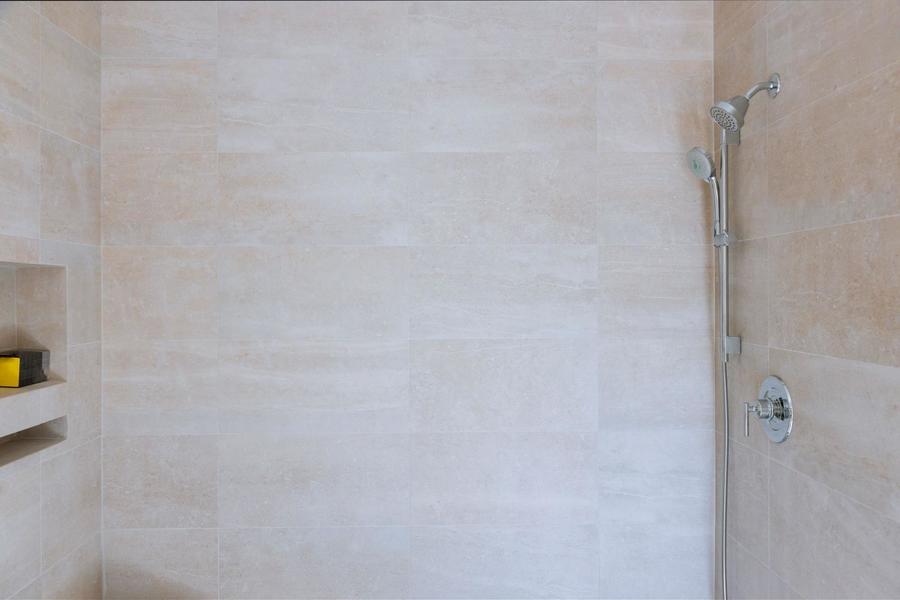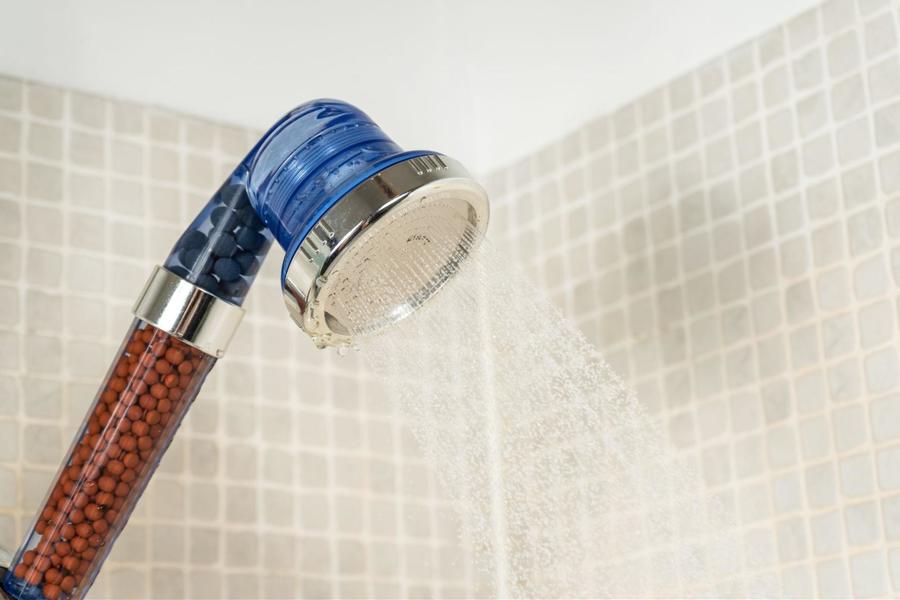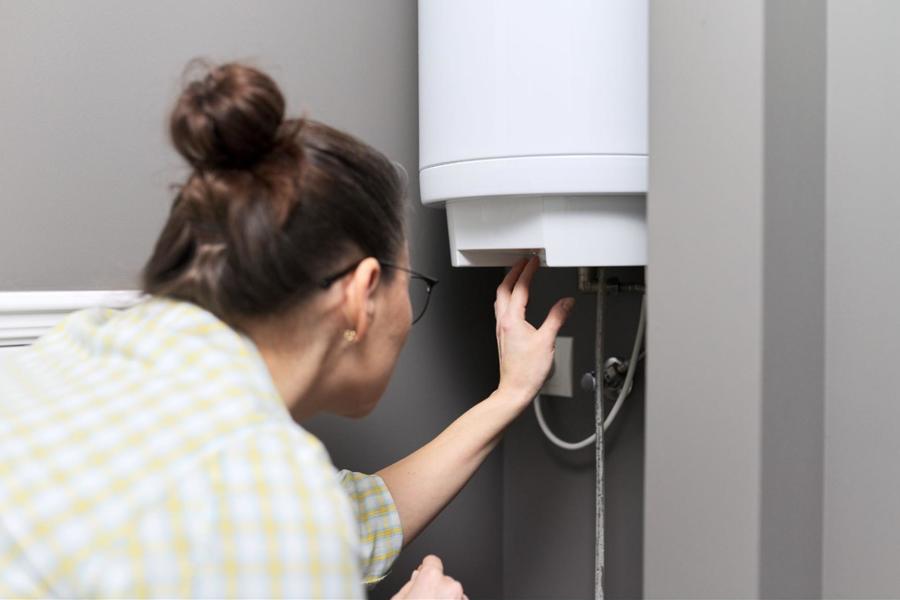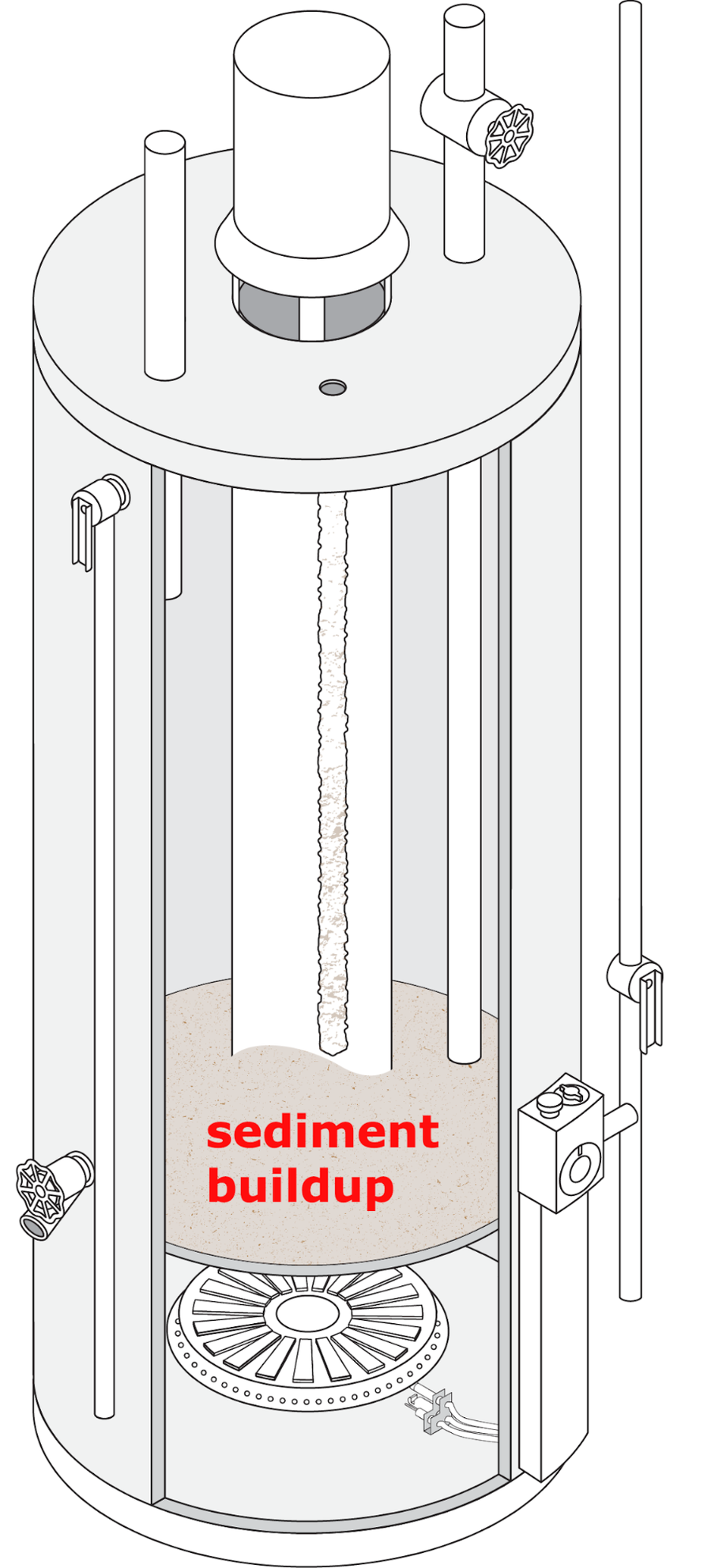Why Is My Shower Running Out of Hot Water Quickly?

Is your shower running out of hot water quickly?
A long hot shower is a great thing to enjoy after a workout or a long day on the job. But, if your hot shower quickly becomes a cold shower, it's not very pleasant. So, why is your shower running out of hot water quickly? This article explains some of the more common reasons, such as:
- Water usage is too high
- Improperly sized water heater
- Age and condition of the water heater
- Water heater issues
Want to avoid being stuck in a cold shower?
Contact Thornton & Grooms for water heater repair services backed by a 100% customer satisfaction guarantee. We've been providing fast and honest service to the Detroit Metro area since we opened in 1937. Call us at (248) 644-7810 or book below to see why we have over eight thousand 5-star reviews.
Your Water Usage Is Too High

If your water usage is too high, you may run out of hot water quickly.
The reason you run out of hot water is usually straightforward. You use up all the stored hot water faster than your heater can replace it. Suppose you like long, hot, soaking showers. In that case, you could quickly run through all the available hot water, particularly if you're simultaneously running appliances such as the dishwasher or washing machine.
The average person takes a shower that lasts just under eight minutes and uses about 16 gallons per shower. If you have a 30-gallon tank and take a longer-than-average shower, or your household runs showers in more than one bathroom at a time, it's not surprising that you might find yourself standing under suddenly cold water.
Slower flow showerheads are a great way to conserve hot water without spending less time in the bathroom. Interested in exploring point-of-use options that can reduce your flow rate? Contact the professionals at Thornton & Grooms for more information about water-conserving fixtures.
Improperly Sized Water Heater
If your shower runs out of hot water quickly, it could be a sign that your water heater isn't properly sized to meet the demands of your household. A water tank that is too small frequently runs out of hot water, even when only one or two people are using the hot water.
Other signs that your water heater may be too small might include:
- Lukewarm water: When your water never reaches the desired temperature, it can mean that your heater isn't powerful enough to provide water warmed to your preferences.
- Unusual noises during operation: If your water heater clangs, bangs, or rumbles when refilling or sending out the hot water, it often means the unit is working hard—too hard.
- Short cycling: If your water heater kicks on and off in short bursts, it can mean your hot water reserve never gets hot and adds wear and tear to your unit.
- Tank size: A small tank can instantly indicate that you need to upgrade depending on your home layout and household size.
The tank size determines the amount of hot water that the heater can hold and, therefore, the amount of hot water available to be used by the household. A general rule of thumb is to have a tank that holds at least 50 gallons for a family of four. Bigger families with multiple bathrooms, large kitchens, or hot tubs will need larger tanks, as they have high hot water usage.
Age and Condition of the Water Heater
Age and condition can significantly affect the efficiency of a water heater. As a water heater ages, its efficiency can decrease due to wear and tear on the unit. Over time, the internal parts of the water heater may become corroded or damaged, which can cause the unit to work harder to heat the water, resulting in higher energy costs.
Has It Been Well Maintained?
If a water heater is not properly maintained, it can become less efficient over time. A lack of regular maintenance can cause the unit to become clogged with sediment or mineral buildup, reducing the unit's efficiency and leaving you with less hot water per hour.
Suppose a water heater shows signs of decreased efficiency, such as higher energy bills, or it is over 10 years old. In that case, it may be time to consider replacing the unit with a newer, more energy-efficient model.
Water Heater Issues

A malfunctioning water heater thermostat can cause your shower to run out of hot water quickly.
If your water heater isn't working properly, several fairly common issues can lead to less hot water availability. A malfunctioning thermostat, broken dip tube, and sediment buildup are the most common repair issues that can explain why your shower quickly runs out of hot water.
Malfunctioning Thermostat
A broken thermostat on a water heater can cause lukewarm water because the system struggles to reach the desired temperature. Or it will fail to heat up at all. It can also cause the water to overheat to a dangerous temperature.
Broken Dip Tube
A dip tube is a long plastic tube located inside the water heater tank that directs cold water to the bottom of the tank, where the heat source is. A broken water heater dip tube can cause many issues, including no hot water, lukewarm water, or water that is too hot. When the cold water is not directed to the bottom of the tank, it mixes with the hot water at the top, affecting the water's temperature.
Sediment Buildup

Sediment buildup in your water heater can cause you to run out of hot water quickly.
Sediment buildup in your water heater can affect its performance in several ways:
- Reduced efficiency: Sediment buildup at the bottom of the tank can insulate the heating element from the water, causing it to work harder and use more energy to heat the water.
- Reduced capacity: As sediment accumulates in the tank, it takes up space that would otherwise be filled with water, reducing the heater's capacity.
- Reduced heat output: Sediment can also clog the hot water outlet, reducing the flow of hot water to the faucets.
- Shortened lifespan: Sediment buildup can cause corrosion and damage to the tank and heating elements, reducing the water heater's lifespan.
To prevent sediment buildup, plumbers often recommend flushing the water heater and draining it to remove the sediment.
Tired of running out of hot water?

Contact Thornton & Grooms for a fast water heater fix to get hot water back.
Contact Thornton & Grooms for fast and convenient water heater repair services that bring in thousands of 5-star reviews. We have been serving Detroit Metro homeowners since 1937 and are known in the area for having friendly, respectful plumbers and same-day appointments. We'll always give you our honest and professional opinion and no-surprise pricing estimate.
Call us at (248) 644-7810 or book with us below.
- Tagged:
- Troubleshooting
